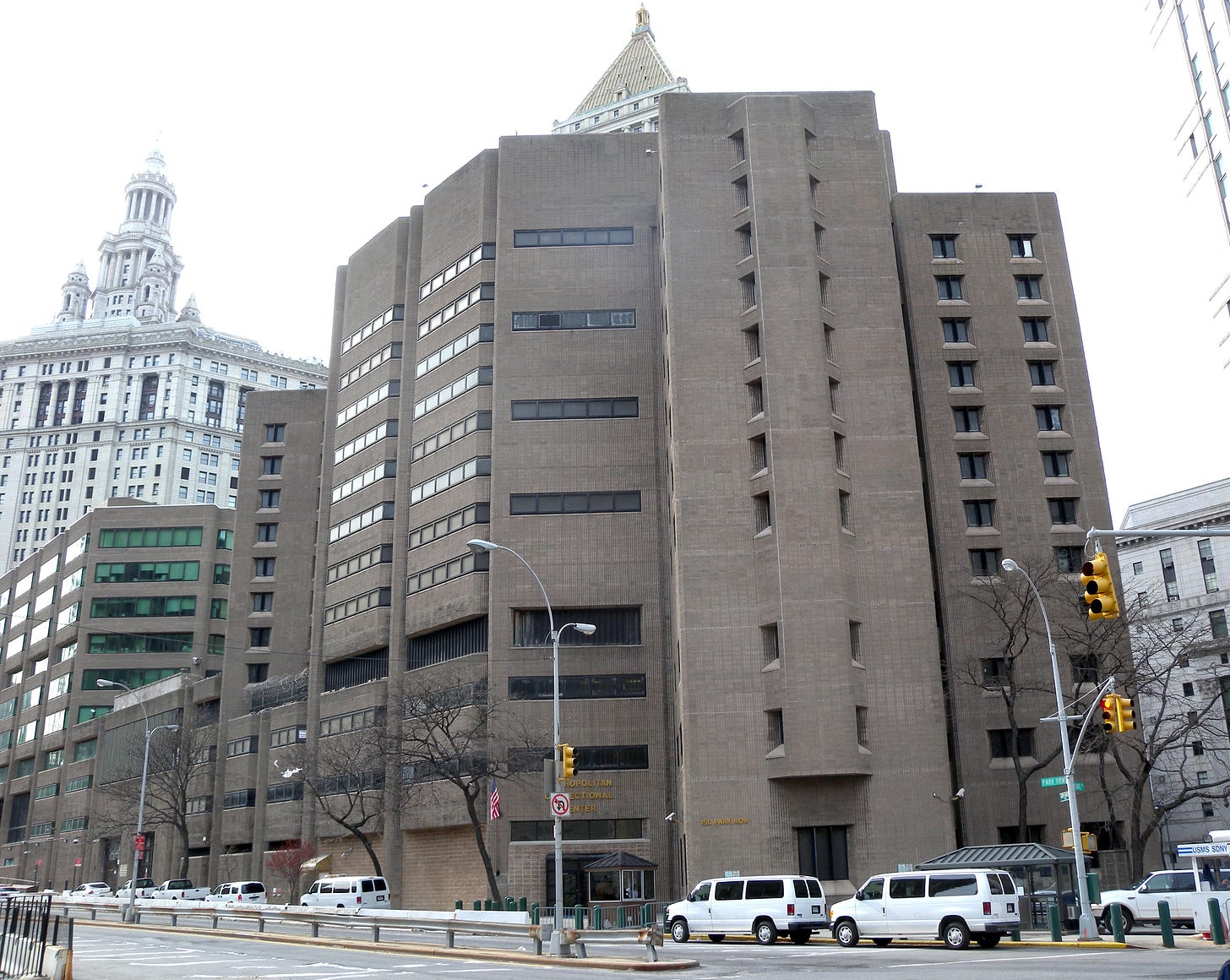‘It’s a revolving door’: Cost of incarcerating one person in N.Y.C. more than $1,500 a day
"You don’t need to be a political economist to come to the very obvious conclusion that paying $1,500 a person to incarcerate someone is probably not the most economical solution to public safety."
New York City’s Metropolitan Correctional Center is seen in this undated photo. (Credit: Jim Henderson)
In 2021, the New York City Comptroller revealed the cost of incarceration has grown to more than $556,000 per person each year. That's over $1,500 each day to lock up just one person. The Comptroller's findings show New York City "is spending more and more to incarcerate fewer and fewer individuals."
The analysis shows a 15 per cent decline in the average number of incarcerated individuals in New York City between 2011 and 2021. But during the same time period, the cost of incarceration quadrupled from $395 per day to $1,525.
Data from the Comptroller shows the number of people detained on Rikers Island has increased to nearly 6,200 people year-over-year as of Aug. 1, 2023. Of those, more than 85 per cent of those detained are awaiting trial and have yet to be convicted of a crime.
For public defender Olayemi Olurin, the vast majority of clients she represents in court are facing “crimes of poverty.”
Ultimately, Olurin believes funds should be reallocated from incarceration and dedicated to providing accessible and affordable housing for New Yorkers.
“Rehabilitation always feels like I'm putting the onus on a person for how they responded to a system that put them in that position,” Olurin said. “Rehabilitation to me is a word that needs to be used for the state and not the people.”
Olurin also voiced concern about Adams’ recent comments backtracking on his promise to follow through with the closure of Rikers Island by 2027. Before becoming mayor, Adams spent more than 20 years working in policing, eventually retiring as a captain in 2006.
By expanding solitary confinement, rallying against bail reform and stacking the courts with conservative judges, Olurin calls Adams’ reticence to close Rikers “a self-fulfilling prophecy he’s intentionally bringing about.”
“He's saying, ‘We can't close Rikers because there's so many people that are in Rikers, but he is the one making sure that there are too many people in Rikers,” Olurin said. “We’re watching the intentional madness of a cop.”
Data shows more than 80 per cent of Americans charged with a felony crime are represented by public defenders, a statistic Olurin says shows the vast majority of those in the criminal justice system are underneath the poverty line.
“If you have people who are quite literally impoverished, they are destitute, and they are doing things as a result of that,” she said.
Marco Barrios, a survivor of Rikers Island and criminal justice advocate with the Urban Justice Center, spent more than 20 years incarcerated in New York State prisons. During his time behind bars, Barrios completed a bachelor’s degree in behavioral science from Mercy College.
“I think we're missing the point that in order to have public safety, you have to address the public health issue,” Barrios said.
Barrios, who served in the Gulf War, spent six weeks behind bars on the jail island complex during two pre-trial detention holds. He tells the Mott Haven Herald the conditions were so horrible, he wanted to be transferred back to a maximum security prison to wait out his day in court.
“As a taxpayer, it doesn't feel right,” Barrios said. “We're just creating a bigger problem because most people are going home eventually.”
The Comptroller also revealed more than half (53 per cent) of people facing incarceration had previously been diagnosed with a mental illness, up from 32 per cent in 2011. Meanwhile, use of force rates by correctional officers increased dramatically, from 178 incidents per 1,000 average daily population in 2011 to 1,561 in 2021.
“The bottom line is jail is not conducive for a person to get the treatment they need and it makes it much harder for a person to come out and be a productive law-abiding citizen,” Barrios said. “It's a revolving door.”
Bianca Tylek is the founder executive director of Worth Rises, a Brooklyn-based organization fighting to dismantle the prison system and those who are exploited by it.
She believes the root causes of incarceration can be addressed by both better and fewer resources that, like the health-care system, focus on preventative measures to help individuals avoid the criminal justice system altogether.
“You don’t need to be a political economist to come to the very obvious conclusion that paying $1,500 a person to incarcerate someone is probably not the most economical solution to public safety,” Tylek said.
Tylek is calling for more investments in violence interruption, harm reduction, safe supply, and mental health interventions, along with education, job opportunities and housing.
“This particular administration is incredibly dedicated to carceral responses to all issues in our society,” Tylek said of Adams. “We’re cutting our education budget and funding robocops. There’s not a justification that could make any of this make sense.”




